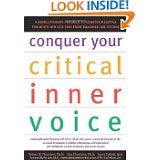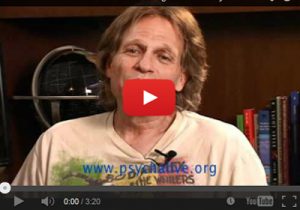6 Major Influences that Stop You from Becoming Your True Self
To be nobody but yourself in a world that is doing its best, day and night, to make you everybody else means to fight the hardest battle which any human being can fight; and never stop fighting.
~ e.e. cummings
 Each individual faces a struggle against powerful odds to retain a unique selfhood and personal identity. People exist in a restrictive social environment that impacts many essential human qualities; among them are the capacity for maintaining personal feelings, the drive to search for meaning, and the ability to live in harmony with and have compassion toward others. The result is that we are all plagued, to varying degrees, by an incorporated thought process which I have identified as the Critical Inner Voice, that is disparaging, hostile and, at its worst, self-destructive. In this blog, I focus primarily on six major influences that impinge upon the evolving self, contribute to psychological distress, and interfere with differentiation and individuation – the project of becoming a person. These include (1) negative prenatal influences, (2) aversive family dynamics, (3) the detrimental effects of psychological defenses, (4) the formation of a fantasy bond in a romantic relationship, (5) harmful societal influences, and (6) the impact of death awareness.
Each individual faces a struggle against powerful odds to retain a unique selfhood and personal identity. People exist in a restrictive social environment that impacts many essential human qualities; among them are the capacity for maintaining personal feelings, the drive to search for meaning, and the ability to live in harmony with and have compassion toward others. The result is that we are all plagued, to varying degrees, by an incorporated thought process which I have identified as the Critical Inner Voice, that is disparaging, hostile and, at its worst, self-destructive. In this blog, I focus primarily on six major influences that impinge upon the evolving self, contribute to psychological distress, and interfere with differentiation and individuation – the project of becoming a person. These include (1) negative prenatal influences, (2) aversive family dynamics, (3) the detrimental effects of psychological defenses, (4) the formation of a fantasy bond in a romantic relationship, (5) harmful societal influences, and (6) the impact of death awareness.
(1) Prenatal Influences
Genetically determined tendencies, temperamental differences, and other physiological predispositions combine with prenatal environmental stresses to form the embryonic self. The interaction between genes and the environment determines the essential makeup of the infant. For example, illness, anxiety, depression, or substance abuse during the mother’s pregnancy can cause distress to the neonate and compromise its future development.
(2) Negative Family Dynamics
Obviously, no parent can be perfectly attuned; in fact, research has indicated that attuned interactions occur in only one out of three parent/infant exchanges (Siegel & Hartzell, 2003). Interactions with parents who themselves have suffered a good deal of unresolved personal trauma and loss in their own upbringing tend to be detrimental to their healthy growth and development of the child’s emerging self (Cassidy & Mohr, 2001). Parental deficiencies lead to insensitive treatment and repeated failures to repair painful exchanges between parent and child. For example, physical and sexual abuse of children is far more common and their effect far more damaging to their sense of self than most people recognize (Edwards et. al., 2003). Children who have been traumatized, rejected or injured in their self-esteem feel anxious, insecure, a sense of isolation and fear abandonment. They are diverted from what would have been their natural developmental pathway and they go on to lead primarily defended lives.
I have defined emotional child abuse as damage to the child’s psychological development and emerging personal identity, primarily caused by parents’ or primary caretakers’ immaturity, defended lifestyle, and conscious or unconscious aggression toward the child. Specific examples of emotional mistreatment include: parental rejection, verbal abuse, threats of abandonment, intrusiveness, lack of respect, stifling or punishing a child’s aliveness or spontaneity, insufficient guidance and isolation. The child’s emotional suffering from these abuses may often exceed the distress caused by physical beatings. However, no child enters adulthood without suffering a certain amount of emotional damage in basic areas of personality development that disturb psychological functioning yet may leave no visible scars.
All forms of child abuse stir up painful primal feelings that are later translated into a person developing self-critical, self-destructive thoughts or “voices” toward him/herself. Later, these negative voices become a significant part of one’s identity. They have long-term debilitating effects on one’s self concept, personal relationships, and happiness, and tend to stifle people’s development of career and vocational pursuits.
(3) The Paradox of Psychological Defenses
When faced with frustration and emotional pain resulting from the insensitivity and abuse described above, children attempt to make the best adaptation possible in order to preserve some form of rationality, sanity, and psychological equilibrium. The self-protective mechanisms or defenses that the child develops early in life are, in fact, appropriate to actual situations that threaten the emerging self.
Nevertheless, the same defenses that shield a child from emotional pain and help to maintain integration, later predispose a distortion of reality, leading to inappropriate reactions, problems in personal relationships, and feelings of alienation, anger and unhappiness. As such, they negatively impact various aspects of a person’s adjustment and impose limitations on their aspirations and pursuit of freedom. In more serious cases, self-protective defensive attitudes can arouse symptoms of fear, cynicism, depression, hostility, and potential violence and suicide. Lastly, relying heavily on certain defenses is a causal factor in specific psychiatric disorders, phobias, addiction, paranoia and psychosis.
(4) The Formation of a Fantasy Bond in a Romantic Relationship
In general, relationships can be conceptualized in terms of the differential effects they have on a person’s sense of self. In constructive relationships, each person’s self-esteem and personal identity is affirmed and nurtured, as contrasted with destructive relationships in which their feeling for themselves and their individuality is damaged.
Intimate or romantic relationships pose a potential threat to each partner’s individuality and independence. In an attempt to find and maintain safety and security in a relationship, partners are often diverted from following their own destiny. Consequently, they may suppress many of their personal interests, goals, and dreams and even at times compromise their ideals and basic values. In addition, they tend to develop collusive patterns of relating that negatively impact each partner’s personality. For example, couples who engage in a parent/child dynamic or good guy/bad guy style of relating lose a sense of personal identity. Furthermore, over time these patterns tend to become progressively more polarized in their functioning.
In order to hold on to the relationship, maintain the status quo, and “keep the peace,” most couples tend to move away from being completely honest and open in their communication, start to manipulate their partners and begin to lose themselves in the relationship. Gradually they replace warmth and genuine manifestations of love and close relating with a fantasy bond. They maintain a belief that they are loved and are acting loving while at the same time behave in ways that do not fit any reasonable definition of the word.
(5) Harmful Societal Influences (Negative Social Pressure)
There are a number of aversive forces operating in the larger society that exert a negative social pressure on individuals throughout their lives.
Conformity: The socialization process in the family tends to categorize, standardize, and put a stamp of conformity on most children. There is a tendency to define each member and assign an identity to him/her. Thereafter, regardless of their validity, children continue to impose the same labels and programming on themselves. Later society adds a complex of other social standards and definitions that, to varying degrees, tend to restrict individuality and personal expression.
I conceptualize society as a pooling of individual psychological defenses that then acts back on the populace as a suppressive influence. Because of this negative aspect, a person should be wary of the dangers of submission and conformity and their destructive effect on the individual. There are strong social sanctions supporting an implicit belief that a person must subordinate him/herself in order to preserve the couple, family, or society’s norms; otherwise one is considered different, abnormal or strange.
Stereotyping: Gender stereotyping creates animosity between men and women and undermines personal relationships. The sexist attitudes and stereotypic views of gender roles disseminated through the media, educational institutions, and other forms of public discourse seriously restrict people’s thinking and adversely affect their behavior. Similarly, stereotypical attitudes that define age-appropriate behavior (ageism) tend to reinforce self-denying tendencies in older individuals.
Prejudice: Attitudes held by many families often encourage prejudice toward other families, groups, and cultures that approach life differently. These distinctions support core beliefs that individuals who do not look “like we do,” who do not act “like we do” are inferior, worthless, immoral, or even dangerous. Another basis for prejudice and racism is the defense of disowning one’s own negative or despised characteristics by projecting them onto others in an attempt to maintain self-esteem. This operates on a societal level where people of one ethnic group dispose of their self-hatred by projecting it onto the people of another, perceiving them as subhuman, dirty, impure, or evil.
(6) The Impact of Death Awareness
When children reach a certain age, they must contend with the anxiety surrounding their awareness that they will die. Even the child who is provided with the necessary emotional sustenance by loving parents is still tormented when learning about death. Death anxiety terrifies people, reinforces the fantasy bond and other psychological defenses that they formed earlier in life and intensifies the division within the personality between the self and anti-self systems. Furthermore, its residual impact continues to affect the individual throughout his/her lifespan.
The fear of death not only causes people to reinforce the fantasy bond, but extends the core defense to society in the form of group identification. Primitive feelings that initially characterized the fantasy bond with one’s parents are transferred onto new figures and ideologies in an attempt to gain a sense of personal immortality. Thereafter, people’s conformity to the belief systems of their culture and adherence to its collective symbols is connected to their attempt to protect themselves against the fear of death.
Conclusion
In this blog I have described the powerful onslaught of conditions that pose a significant threat to our survival as a feeling species. People must fight hard to maintain their uniqueness, their independence, their individuality, their compassion for self and others and their personal freedom. It is a challenge to survive the socialization process in our families and society and still remain creative and independent.
To fulfill our personal destiny and to make full use of our lives, we must make every effort to differentiate both internally from our own defenses and externally from harmful social influences. In our struggle to achieve and maintain autonomy and a strong sense of self, we must resist the tendency toward conformity and avoid becoming a passive part of a group process. Differentiation involves becoming an independent person who functions primarily from an adult posture, lives with integrity, and has an inclusive worldview. It involves being human to the fullest extent.
References
Cassidy, J. & Mohr, J. J. (2001). Unresolvable fear, trauma, and psychopathology: Theory, research, and clinical considerations related to disorganized attachment across the life span. Clinical Psychology: Science and Practice, 8, 275-298. doi: 10.1093/clipsy.8.3.275
Edwards, V. J., Holden, G. W., Felitti, V. J., & Anda, R. F. (2003). Relationship between multiple forms of childhood maltreatment and adult mental health in community respondents: Results from the adverse childhood experiences study. American Journal of Psychiatry, 160(8), 1453-1460. doi:10.1176/appi.ajp.160.8.1453
Siegel, D. J. & Hartzell, M. (2003). Parenting from the inside out: How a deeper self-understanding can help you raise children who thrive. New York: Jeremy P. Tarcher.
5 Comments
Comments are closed.











Thank you for such an informative article, it has helped me enormously this morning, enlightening and heartening in some ways.
Thank you for writing this thoughtful piece, Robert. I’m struggling with my critical inner voice right now.
Your article is really a good start for me to cope it.
when was this article published?
November 2018
Amazing, Brilliant, Inspiring, Touching, Genuine are some of the words for this writing that come to my mind.
I feel grateful for receiving these wise and compassionate words that are fully describing my experience.
Thank you very much,
Efi